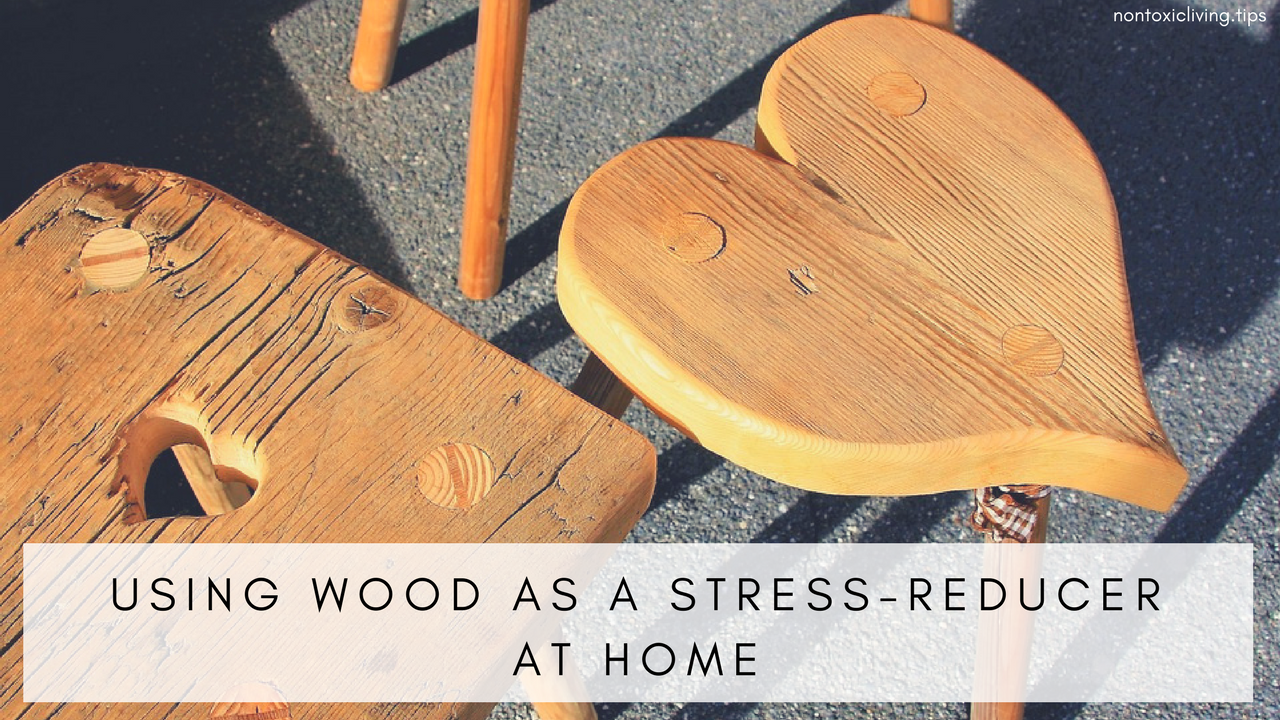
Using Wood as a Stress Reducer at Home
Mar 26, 2018by Angela Cummings and Sophia Ruan Gushée
In today’s fast-paced world, stress is increasing. Along with the amount of time we spend indoors.
On average, people spend 90% of their time indoors, according to the U.S. Environmental Protection Agency. (1) The need for a low-stress, indoor environment is more important than ever.
Studies show that indoor environments that have wood, plants, and other natural elements improve health. However, there are chemicals in wood—particularly in composite wood, wood glues, and wood finishes—that can adversely affect health. It’s important to understand how to choose woods that are contributing positively to an indoor environment.
How Wood Improves Health
While the benefits of wood is a relatively new field of study, evidence stemming back to the 1960s show that incorporating nature indoors can decrease stress, and improve our psychological and physical states. (2)
“After an extensive literature review of the last 15 years, it is clear that there are significant health benefits [psychological and physical] associated with the presence of these natural elements [wood, plants and views of nature] in an indoor setting. Some of these benefits include reduced stress, increased pain tolerance, improved task performance, increased sense of well-being and attentional focus recovery, and heightened natural killer activity.” (3)
Health Benefits of Wood, Plants & Nature
Studies show that indoor environments with natural lighting, wood, plants, and other forms of nature prompt feelings of warmth, relaxation, and comfort. (4) Health benefits of having wood, plants, and elements of nature indoors include: (5)
- Increased pain tolerance
- Improved immune system
- Improved mood and task performance
- Improved creativity
- Improved sense of well-being
- Reduced stress
- Reduced feelings of depression and dejection
- Decreased blood pressure
However, be aware that natural molds and allergens can be found in natural materials. For example, reclaimed wood could contain lead paint and mold. So be vigilant when studying what you buy, and use caution when choosing the types of wood to use.
Choose Nontoxic Wood for Indoor Environments
When buying or installing wood products in the home, consider that:
- Solid hardwood materials have the least amount of volatile organic compounds (VOCs)
- Solid softwoods naturally release higher amounts of VOCs than hardwoods
- Composite woods are made of wood parts and adhesives for bonding agents, which are made from chemicals that may impair health.
- Standard stains, paints, finishes, glues and adhesives can also contain chemicals that have been linked to health concerns.
- Instead, choose solid hardwood products that are secured with screws, nails, or zero- to low-VOC glues and adhesives. Finishes such as stains, paints and sealers made from natural, zero- or low-VOC ingredients are preferable to high-VOC products.
I hope the tips above help you create an indoor environment that is good for your mind, body, and spirit. If you have any tips or photos you'd like to share, please tag me on Instagram @sophiagushee.
References
(2)(3)(4)(5) The University of British Columbia



